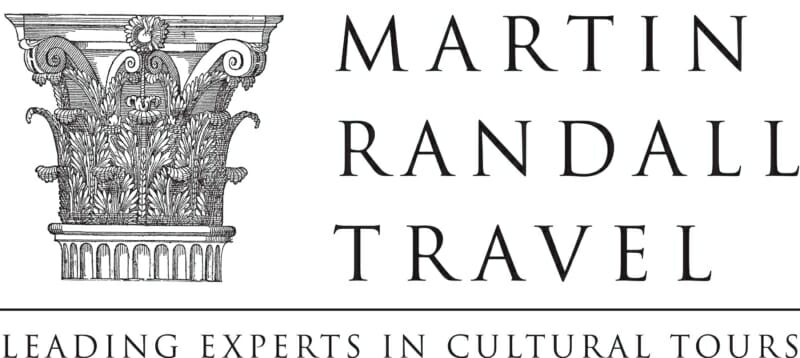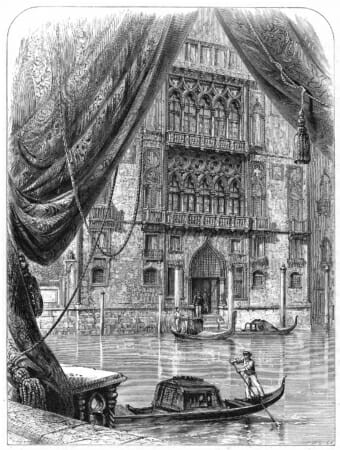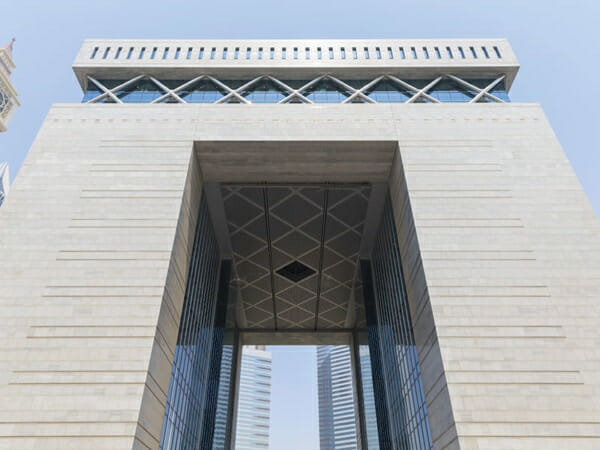Gap in the Market Volume 10 - Cultural Travel
As part of our popular ‘Gap in the Market’ series, we take a closer look at unique sectors in the travel industry and discover more about how they tick. We’ve already covered travel niches dedicated to wellness, food tourism and corporate trips, speaking with plenty of industry leaders in the process. This week we're delving into the world of cultural travel, which for many may sound like a misnomer. But it's not. Here's why...
Cultural travel as a separate entity
Surely, you may be thinking, all travel has culture at its core. To an extent this is true. The chance to experience new cultures and our innate curiosity about lands and people different from our own are two of the driving forces behind a travel industry that seems to be permanently on the up. But as we've seen throughout our 'Gap in the Market' series, there are plenty of trends that veer away from the traditional motivations for travel.
With that in mind, when we say 'cultural travel' we mean it more literally than you might think. The growing market for cultural travel refers to explicitly cultural tours where education is the focus, not getting a suntan or taking to the slopes. Many of these trips manage to be educational in the classroom sense while bearing all the hallmarks of modern-day travel.
Cultural tours are often led by academics and experts in the field in question, giving lectures, ready to answer questions and offering insight far beyond what any guidebook can offer. But it's more than just a walking classroom. Travellers are whisked away - often in luxury - to the sights of history itself, immersed in bespoke tours that aim to enlighten and delight in equal measure.
When put like that, it's easy to understand why the cultural tour sector is emerging so strongly.
Changing demographics boosting the cultural travel trend?
It's important to state that the rise in travel agencies offering cultural tours didn't come from nowhere. There's an increasingly receptive audience for trips dedicated to history and the arts, especially those that offer a touch of luxury for good measure. So why is this? Well, just as the Gap Year travel trend has become firmly established for twenty-somethings in need of adventure, perhaps cultural travel represents the mirror image for older generations. The combination of an ageing population, a middle class with plenty of disposable income and an increasing willingness to discover new experiences is the perfect recipe for the cultural travel boom.
Who are the big players in the world of cultural travel?
There are a few established names in the world of cultural travel. ACE Cultural Tours have been operating since 1958 and offer a range of trips to exotic locations all around the world. All tours are led by specialists in the field in question and vary from week-long cruises down the Douro to educational city breaks around Europe.
The trend of expert-led trips continues with Jon Baines Tours and Martin Randall Travel. Both provide all-inclusive packages revolving around specific themes and locations, from medicine, Uzbekistan and medieval art to gastronomy and Iran.
To dig a little deeper into the world of cultural travel, we got in touch with the team at Martin Randall, and acting PR manager Lucy Emanuel was kind enough to answer a few of our questions.

A focus on expertise, exclusivity and a shared experience
Clearly, a huge part of the attraction of cultural tours is the focus on expertise. It is the opportunity to be guided through the subject at hand by a genuine, often world-leading expert that separates these trips from your standard tour. Martin Randall Travel's Lucy Emanuel paints an interesting and very believable picture of the company's clientele. They are "Curious and discerning", she says, and searching for tours that "enlighten, inform and inspire".
This expertise is about both education and exclusivity. Travellers booking trips with operators like Martin Randall Travel know that they are going to experience a destination in a way that they couldn't possibly of they were on their own. "MRT tours are led by expert speakers who have been selected for their knowledge and their ability to engage with an audience – they are a key ingredient of our tours," says Emanuel. "Our clients are also drawn to our tours because they feature special arrangements – MRT travellers seek experiences they are unable to arrange on their own."
Learn about the culture and history and gain real insight into contemporary life in each destination, with rewarding detours from the well-trodden tourist trail. You will travel with other open-minded, intelligent and questioning people." - Jon Baines Tours
When asked why trips centred on culture and the arts appeal to travellers in the way that they do, Emanuel describes three of the obvious draws: immersion, insight and exclusivity. You can gain a deep understanding about a country through its culture and arts," she says. "You may be able to watch a documentary or visit a museum website, but there is nothing like the experience of seeing an artefact or monument in person, with an expert illuminating every detail and describing it in context. It is a rewarding holiday experience."
But what's also clear from looking closely at Martin Randall and its competitors is the importance of camaraderie and the social side of cultural tours. Many travellers are looking to have their adventure alongside like-minded people, a factor that should not be understated.
Cultural tours offer endless variety
Despite strong competition in the market, it would seem as though the entirety of human history and culture offers plenty of opportunities for travel. Martin Randall Travel runs "around 300 small-group tours every year in the UK, continental Europe, North Africa, the Middle East, Central Asia, India, China, Japan, the Americas and Australasia."
"Our most popular destinations is Italy, as we have the largest range and greatest number of tours going there every year," says Emanuel. In terms of the type of tours that tend to be most popular, again it comes back to exclusivity. "The tours that sell the best are those that include visits to places that are privately owned or off the beaten track, and therefore difficult to arrange for the independent traveller."

"One of our most popular tours is Venetian Palaces, led by art historian Dr Michael Douglas-Scott. The tour explores the finest palaces in Venice, with access to many by special arrangement (as they are still in private hands). There is also a private, after-hours visit to St Mark’s Basilica. This sums up MRT - we provide unforgettable experiences with the best expert lecturers."
Cultural travel looking forward
Martin Randall Travel's Lucy Emanuel admits that the market is "more competitive than it has ever been". But it seems this is a sector set to grow more popular if - and this is an important 'if'' - it can cope with changing political climates around the world.
Cultural travel stands to lose more than most sectors, particularly as several popular trips are held in unconventional tourist destinations across the Middle East. "The primary challenge the travel industry faces is the current state of world politics," says Emanuel. "We used to run a lot of tours to the Middle East, particularly Egypt, Syria and northern Turkey. Unfortunately, these tours are no longer viable."
Read more: Travel Industry Hit by Terrorism and Political Unrest
"We continuously monitor FCO advice across all of our tours as the safety of our travellers in paramount."
With popular cultural destinations across the Middle East facing security fears and political instability, opportunities have grown elsewhere. "We are seeing greater interest in tours to the East, primarily in China and Japan," says Emanuel.

"We are running six tour departures to the region in 2017, all of which are selling incredibly well. We also have an exciting new tour, The Arabian Gulf. The tour covers broad themes – history, architecture – but one of the main features is the wealth of new art museums and art collections in the region. The highlight of this being the Saadiyat Island in Abu Dhabi, which includes the new outpost of the Louvre and the Zayed Museum. Both museums are still in the final stages of construction, but are scheduled for grand opening later this year."
Cultural travel as an opportunity
Few travel sectors can rival the world of cultural travel when it comes to variety. For this reason alone it seems like an opportunity for any ambitious travel startup. Having said that, the bar for quality has been raised very high by the established operators. Cultural travellers are a discerning group and expect exclusivity, expert-led tours and a comfortable, all-inclusive trip. While we have no figures to confirm this suspicion, it also seems like a sector in which customer loyalty still exists, where there is a stronger bond between traveller and agent than you might find elsewhere.

This all adds up a challenge for any travel startup looking to gain a foothold. However, there's certainly room for a marketplace to bridge the gap between cultural operators and help customers decide between trips.
Here at Travelshift, we help startups in the travel industry build marketplaces that aggregate suppliers and reach bigger audiences than previously possible. We make this happen with our proprietary marketplace platform, which is packed with built-in features to help startups take off and compete from day one. Get in touch with us today for more information.